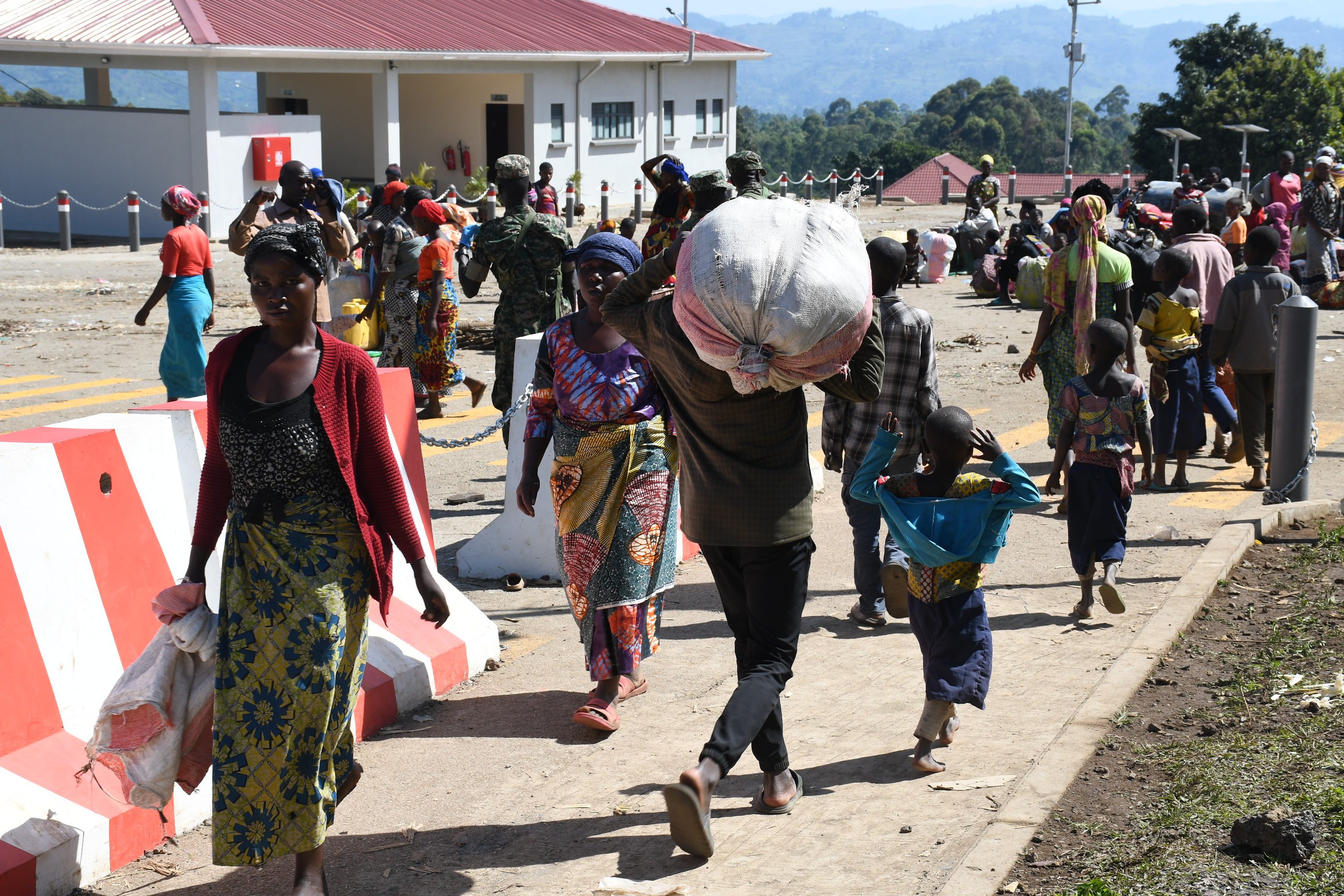5 Covid cases registered among Congo refugees

A Ugandan health worker measures the temperature of a Congolese refugee at Busanza border post in Kisoro District on November 10, 2022. PHOTO/ROBERT MUHEREZA.
What you need to know:
- District leaders urge the public to observe existing protocols to avoid contracting the disease.
Five Congolese refugees have been isolated at Nyakabande refugee transit camp in Kisoro District after testing positive for Covid-19.
The assistant district health officer, Ms Annette Dusabe, yesterday said although the patients are not very sick, they have been isolated to avoid transmitting the disease to others.
“It’s true we have isolated the five refugees. We are closely monitoring their health as we treat every symptom that manifests,” Ms Dusabe said.
She advised the health workers, staff from different humanitarian organisations operating at the transit camp and the general population in the district to observe standard operating procedures to avoid contracting the disease.
The deputy Resident District Commissioner, Mr Robert Tukamuhebwa, said since March when Congolese refugees started crossing into the district following the escalation of the M23 conflict, they have tested 47,993 of them and found 677 with the virus.
“We had about 2,365 Congolese refugees at Nyakabande refugee transit centre as of Sunday and we continue to receive on average 500 daily because of the recent fresh fighting [between DRC government and M23 rebels],” observed Mr Tukamuhebwa.
Cumulative cases
He said the cumulative number of Congolese refugees manually registered in Kisoro since March is 63,510 individuals and 32,286 households.
“The cumulative number of relocations to settlements is 26,068 individuals from12,388 households,” Mr Tukamuhebwa explained.
The deputy RDC added that the situation in DRC is still fragile, with fighting being reported in the areas of Rutshuru and Kiwanja, forcing more refugees to flee into Kisoro through Bunagana, Busanza and other porous border entries. He also said most asylum seekers from DRC are coming from the areas of Kinyamahura, Runyoni, Gisiza, Gisigali, Gichambwa, Chanzu, Runyoni, Karambo, Gitovu, Mucheya, Nyarubara, Karengera and Kiwanja, with majority fleeing from areas close to the Chanzu M23 base.
“We noted that the majority of the Congolese refugees this time are fleeing without any significant household or personal belongings as it has been the trend before, and majority are women and children.
More than 721 asylum seekers accessed asylum space through the Bunagana and Busanza border posts at the weekend,” Mr Tukamuhebwa said.
Ms Fransene Umutesi and Mr Sebuhinza Maniragaba, both refugees, narrated that they have been constantly hearing bomb blasts and gunshots in the neighbouring areas of Rutshuru and they thought that anytime the fighting may advance to their home area.
“We have decided to come to Nyakabande transit centre for registration as we wait to be relocated to Nakivale refugee settlement for safety until peace is restored in our home areas,” Ms Umutesi said.
Background
The emergence of Covid-19 comes as health authorities in Kisoro have expressed fear of an Ebola outbreak due to lack of equipment to screen the Congolese refugees that cross into the district daily. In August, DR Congo registered a new Ebola case in the country’s North Kivu Province.
The World Health Organisation three months ago trained health workers in five countries, Uganda inclusive, to increase their capacity to respond to infectious diseases such as Ebola.




